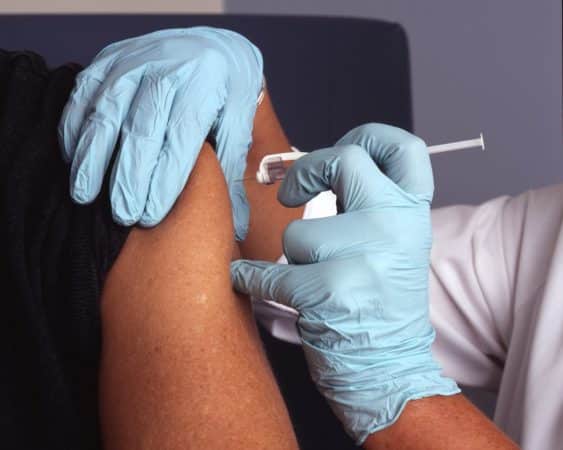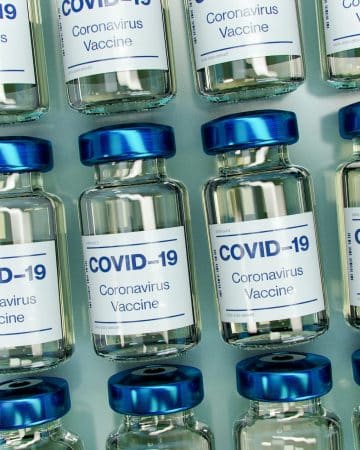
3 August 2021 – When can I get vaccinated? Which vaccines are we getting, how does it work, and is it dangerous? We at Altogether Autism have compiled some answers to these frequently asked questions that will hopefully set your mind at ease and help you make your decision about getting a vaccination.
How does the rollout work?
Earlier this year the government began their four-group rollout of the COVID-19 vaccine. Group 1 vaccinations began in February and consisted of essential border workers and those who work in managed isolation facilities. Group 2 followed in March and was made up of high-risk frontline workers or people living in high-risk areas. The Group 3 vaccinations have experienced some delays, but they are currently available to book now. This group consists of people at high risk of getting very sick from COVID-19, including people with disabilities and autism. If you are in this group, you should be contacted at some point by your DHB to arrange a vaccination, but if you haven’t been contacted you should visit your DHB’s website for more information about vaccinations in your area.
Group 4 is the final group to be vaccinated and this began on the July 28. This will start with those over 60, then those over 55 from August 11. Depending on the availability of vaccines, those over 45 will be able to book their shots from mid to late August, followed by those 35 and older in September. People between the ages of 16 and 35 are expected to be eligible sometime in October.
Which vaccine are we getting? (Ministry of Health, 2021)
There are a few different types of COVID-19 vaccine available worldwide, but the vaccine that is being administered in New Zealand as part of the rollout was manufactured by Pfizer. This vaccine requires two doses given three weeks apart and is approximately 95% effective. Fever, muscle pain, and fatigue are among the common side effects experienced in the days after the vaccination (more likely after the second shot). The vaccine will be completely free for all New Zealand citizens, and vaccination, while recommended, is not mandatory. It has not been approved for people under 16 due to lack of clinical trial data on its effects on younger people. Pregnant women are advised to discuss the risks and benefits with their doctors, and those on certain cancer medications (Keytruda, Opdivo, Yervoy, and Tecentriq) are recommended to not get the vaccine.
On the July 7, the COVID-19 Response Minister Chris Hipkins announced that the Janssen Covid-19 vaccine (Johnson & Johnson) has been approved for use in New Zealand (Martin, 2021). This is a single shot vaccine, and a decision is likely to be made in August about whether New Zealand will make this vaccine available to the public or if it will be donated to other countries. Currently it is being viewed as a ‘flexible’ option were there to be disruptions to our supply of the Pfizer vaccine, which is slightly more effective and hasn’t been associated with the very rare blood clotting issue like the Janssen vaccine has. It is important to note that this is an extremely rare issue, as over 6.8 million Americans have been vaccinated and a total of 6 women developed the blood clots.
How does the vaccine work? (CDC, 2021).

The Pfizer vaccine is different because rather than containing the viral protein itself, it instead contains genetic instructions called mRNA. Think of mRNA as a blueprint for the COVID-19 virus. This blueprint teaches our body how to make the virus protein without actually needing to be exposed to a weakened version of the virus.
Our cells follow these instructions and make the protein, which our immune system then notices and attacks. We can sometimes feel this ‘attack’ in the form of vaccine side effects like fevers, aches, etc. This is our body doing what it is supposed to by destroying the foreign protein.
Our cells now ‘remember’ this COVID-19 protein, and how to destroy it. The mRNA instructions we get from the vaccine also get broken down by the body too, so they aren’t hanging around in there forever. The vaccine also does not alter our DNA in any way. So now, if we get exposed to the actual COVID-19 virus (which our body has never seen before), our ‘memory cells’ will recognise the protein on the outside of the virus (the protein from the vaccine) and immediately launch a ramped-up attack which destroys the virus before it has a chance to replicate or make us sick. This is how we become immune to the virus.
If I’m vaccinated, does that mean I can still give the virus to others? (WHO, 2021)
Vaccination significantly reduces the risk of getting COVID-19, but it is still possible to spread the virus to others (though this likely occurs at a lower rate). That is why it is so important during the rollout that we continue to be smart about our decisions when travelling abroad, staying home if we feel sick, and wearing masks where possible on public transport until as many people are vaccinated as possible.

There is a lot of scary misinformation out there about COVID-19 vaccinations. Some autistic families may be particularly sensitive to these kinds of campaigns given the number of “vaccines cause autism” myths that have spread over the past 20 years.
One NZ-based group called Voices for Freedom has been particularly active in making these kinds of misleading claims. It is important to note that all of these claims that have already been debunked by scientists in a Newshub article (Satherley, 2021). Some of the highlights include:
| CLAIM | REALITY |
| COVID-19 vaccines are experimental, and trials have not yet been completed | The Pfizer phase III trial finished in November 2020 |
| The vaccine has not been shown to stop you from catching COVID-19 or from passing it on to others | “Data from Israel, the USA, and the UK clearly show reduced rates of both infection and illness among those vaccinated” – Dr Alison Campbell |
| It is unknown if the vaccine will cause cancer, sterility, or mutate cells | the mRNA in the vaccine cannot integrate with DNA or mutate DNA. Furthermore, no authorised vaccines have ever cause sterility or cancer |
| Deaths and cases of serious injury are being reported around the world at an alarming rate | Correlation does not equal causation. There were more deaths among the placebo group in the Pfizer trial than in the group that actually received the vaccine dose. There have been reports of blood-clotting following AstraZeneca and Johnson & Johnson vaccinations, but these are extremely rare and are far, far lower than the number of deaths caused by COVID-19. There have been no reports of blood clots with the Pfizer vaccine |
| There’s no evidence that lockdowns work to reduce overall mortality in a population | New Zealand reported 5% fewer deaths in 2020 than in previous years, and the biggest year-to-year drop ever recorded. Beyond leading to fewer deaths, the lockdowns also led to fewer cases period. This can’t be understated as while it is true that most people who contract COVID-19 do not die, the long-lasting effects for some people can be devastating – both to an individual and also economically. Approximately 10% to 30% of people who ‘recover’ from COVID-19 are left with lasting health problems, e.g., breathing difficulties |
| Typical mask wearing does not reduce COVID-19 infection rates | Studies have shown transmission reductions in both lab and real-world settings when masks are worn properly |
Conclusion
The Pfizer Covid-19 vaccine is safe and effective. There are some expected side-effects, particularly with the second dose, but they are a normal immune response as your body is learning to fight the virus. If you have any concerns about whether it is safe for you to receive the COVID-19 vaccination, consult with your GP.
References
CDC. “Understanding mRNA COVID-19 vaccines”. (March 4th, 2021). Retrieved from the CDC website: https://www.cdc.gov/coronavirus/2019-ncov/vaccines/different-vaccines/mrna.html
Martin, H. (July 7th, 2021). “COVID-19: How does the single-dose Janssen vaccine work and when will we get it?” Retrieved from the Stuff website: https://www.stuff.co.nz/national/health/coronavirus/300351734/covid19-how-does-the-singledose-janssen-vaccine-work-and-when-will-we-get-it
Ministry of Health. (2021). “COVID-19 vaccines”. Retrieved from the Ministry of Health website: https://www.health.govt.nz/our-work/diseases-and-conditions/covid-19-novel-coronavirus/covid-19-vaccines
“Ministry of Health details COVID-19 vaccination online booking tool”. (25th June, 2021). Retrieved from the RNZ website: https://www.rnz.co.nz/news/national/445526/ministry-of-health-details-covid-19-vaccination-online-booking-tool
Satherley, D. (29th April, 2021). “Coronavirus: Every claim about COVID-19 made by anti-lockdown group Voices for Freedom debunked by scientists”. Retrieved from the Newshub website: https://www.newshub.co.nz/home/new-zealand/2021/04/coronavirus-every-claim-about-covid-19-made-by-anti-lockdown-group-voices-for-freedom-debunked-by-scientists.html
WHO. (30th July, 2021). “Q&A on vaccination and travel this summer.” Retrieved from the World Health Organisation website: https://www.euro.who.int/en/health-topics/health-emergencies/pages/news/news/2021/06/q-and-a-on-vaccination-and-travel-this-summer
- Ashe Yee – (B.A. – Psychology) – joined the Altogether Autism team as a researcher in late 2019. She graduated from the University of Newcastle in 2016 with a Bachelor in Psychology (First Class Honours). She is passionate about delivering evidence-based information to families in need, and in fighting against the spread of misinformation about autism.


